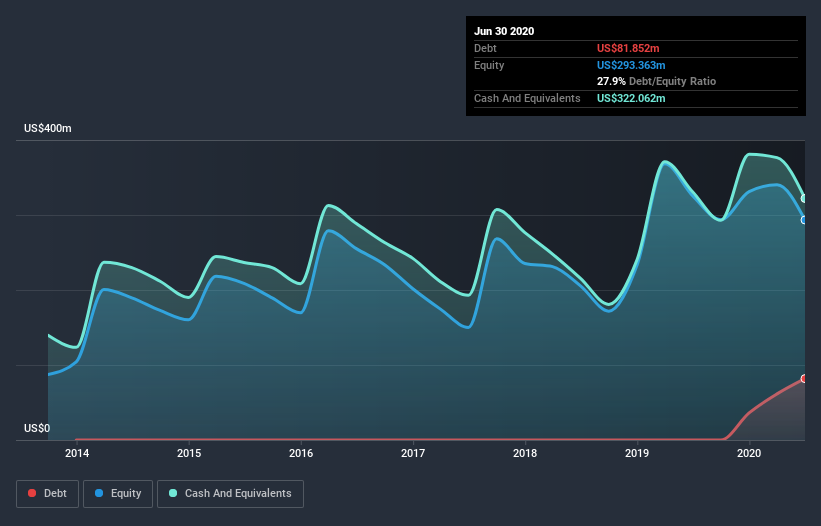Is Epizyme (NASDAQ:EPZM) A Risky Investment?

Howard Marks put it nicely when he said that, rather than worrying about share price volatility, 'The possibility of permanent loss is the risk I worry about... and every practical investor I know worries about.' So it seems the smart money knows that debt - which is usually involved in bankruptcies - is a very important factor, when you assess how risky a company is. Importantly, Epizyme, Inc. (NASDAQ:EPZM) does carry debt. But is this debt a concern to shareholders?
When Is Debt A Problem?
Generally speaking, debt only becomes a real problem when a company can't easily pay it off, either by raising capital or with its own cash flow. In the worst case scenario, a company can go bankrupt if it cannot pay its creditors. However, a more usual (but still expensive) situation is where a company must dilute shareholders at a cheap share price simply to get debt under control. Of course, the upside of debt is that it often represents cheap capital, especially when it replaces dilution in a company with the ability to reinvest at high rates of return. When we think about a company's use of debt, we first look at cash and debt together.
View our latest analysis for Epizyme
What Is Epizyme's Debt?
The image below, which you can click on for greater detail, shows that at June 2020 Epizyme had debt of US$81.9m, up from none in one year. However, it does have US$322.1m in cash offsetting this, leading to net cash of US$240.2m.
How Healthy Is Epizyme's Balance Sheet?
We can see from the most recent balance sheet that Epizyme had liabilities of US$30.7m falling due within a year, and liabilities of US$103.4m due beyond that. Offsetting this, it had US$322.1m in cash and US$1.75m in receivables that were due within 12 months. So it can boast US$189.8m more liquid assets than total liabilities.
This surplus suggests that Epizyme has a conservative balance sheet, and could probably eliminate its debt without much difficulty. Succinctly put, Epizyme boasts net cash, so it's fair to say it does not have a heavy debt load! When analysing debt levels, the balance sheet is the obvious place to start. But ultimately the future profitability of the business will decide if Epizyme can strengthen its balance sheet over time. So if you want to see what the professionals think, you might find this free report on analyst profit forecasts to be interesting.
In the last year Epizyme had a loss before interest and tax, and actually shrunk its revenue by 41%, to US$14m. That makes us nervous, to say the least.
So How Risky Is Epizyme?
By their very nature companies that are losing money are more risky than those with a long history of profitability. And in the last year Epizyme had an earnings before interest and tax (EBIT) loss, truth be told. And over the same period it saw negative free cash outflow of US$235.1m and booked a US$201.9m accounting loss. But at least it has US$240.2m on the balance sheet to spend on growth, near-term. Overall, its balance sheet doesn't seem overly risky, at the moment, but we're always cautious until we see the positive free cash flow. When analysing debt levels, the balance sheet is the obvious place to start. But ultimately, every company can contain risks that exist outside of the balance sheet. Consider for instance, the ever-present spectre of investment risk. We've identified 3 warning signs with Epizyme , and understanding them should be part of your investment process.
Of course, if you're the type of investor who prefers buying stocks without the burden of debt, then don't hesitate to discover our exclusive list of net cash growth stocks, today.
This article by Simply Wall St is general in nature. It does not constitute a recommendation to buy or sell any stock, and does not take account of your objectives, or your financial situation. We aim to bring you long-term focused analysis driven by fundamental data. Note that our analysis may not factor in the latest price-sensitive company announcements or qualitative material. Simply Wall St has no position in any stocks mentioned.
Have feedback on this article? Concerned about the content? Get in touch with us directly. Alternatively, email editorial-team@simplywallst.com.

